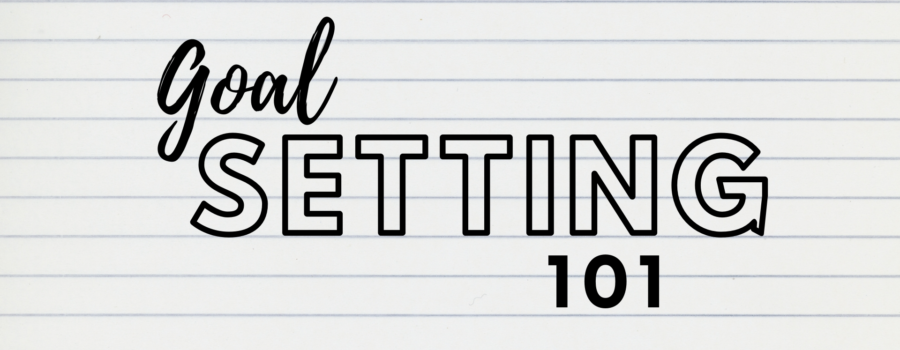3 Things to Think about When Setting a Goal
1. Setting a goal means you want to change your life.
This might sound dramatic and like an exaggeration, but it isn’t. Setting a goal is no small feat because it means you are trying to add or subtract something to your life that previously has been set to cruise control. And, achieving this goal means you’re going to have to do something you’re not currently doing.
Maybe you want to fit into those jeans that looked so good on you last year or however long ago that was. While this goal sounds nice, most people don’t realize that what they are really striving for is a lifestyle change. If you don’t understand this, then what you wind up with is wishful thinking. And, this kind of thinking is why so many people fall off the bandwagon by the next month.
Reaching a goal, no matter how simple or measurable, only happens when you make specific, intentional changes to your routines. For instance, getting into those old jeans might mean drinking your coffee black. Having one serving instead of two. Or putting that savory saltiness down no matter how stressful the day has been. Making intentional choices in the everyday moments, while painful at times, is how you create lasting change.
2. Your thoughts matter.
Lasting behavioral change only happens when our thoughts, beliefs, and values align with our behaviors. Let’s say you want to be more present with those around you. So you set an intention to put your phone down when you get home or when you’re eating lunch with coworkers. This intention will only last if what you think about yourself and those around you align with your desired change. If you don’t think people want to be around you, then you’ll grab your phone and hide behind your social media accounts as soon as a someone starts talking about something you don’t understand. But, if you show yourself kindness by remembering that learning something new is a good thing, then you’re more likely to ask a question and help the conversation move along.
3. Pace yourself.
You’ve heard the classic sayings like “Rome wasn’t built in a day” or “you eat an elephant one bite at a time.” While that last one is a little strange if you think about actually eating an elephant, the gist of the statements are still important. Change takes time. If you plant a seed for a fruit tree, don’t expect an apple harvest the next year. Similarly, attaining and maintaining your goals means you have to be patient with the process. Expect setbacks. If you can’t do it, that’s okay. Re-examine your goals and your intentions and realize that failure is one step in the process that many people never take because they believe it’s a dead end instead of a fork in the road.
Goals that are attained quickly usually mean the results don’t last long. This is why crash diets, well, crash. Typically, these types of diets just restrict what you do instead of teach you to do something better, something new. So when you have a cheat day or get discouraged, you’re more like to fall harder and faster because the quick result had no real support to begin with. Just as a tree needs deep roots and a thick trunk in order to support the weight of its branches and eventual fruit, so our goals need specific intentions and helpful thoughts to nourish the foundation when discouragement comes or a bad day begins.
Goals vs. Habits. vs. Intentions
A goal is the overarching idea that you are trying to attain.
Ex: You want to feel better.
A habit is the behavior you either consciously or subconsciously choose that curates your lifestyle.
Ex: You rush around in the morning while you’re getting ready because you enjoy sleep more than a peaceful routine.
An intention is a specific action you take in order to create new habits and/or undo old ones. These intentions (also known as steps) help you achieve your overarching goals.
Ex: I feel better when I’m not rushing in the morning. In order to change the habit of hitting snooze, I need to create a list of intentions like setting my coffee to brew 30 minutes earlier and placing my phone away from my bed at night.
What happens when “I don’t feel like it” sets in?
Remember you are not alone. Everyone has a day or weeks when we do what we don’t want to do and we don’t do what we want to do. The idea is to not let these moments fuel our inner critic and instead use these moments as reminders to reflect and cultivate self awareness.
Maybe you “don’t feel like it” because you haven’t given yourself permission to take a break and you’ve been running every day for 10 days straight. Listen to your body; it’s tired.
Or maybe you need some alone time. And even though you still want to connect with those around you, you know that you’ll be able to connect better once you’ve taken a bath and gotten away for a little while. Listen to your needs; they matter too.
Or maybe you’re just angry and sad and confused. And feeling better means understanding how and why you feel so that you can resolve the feeling instead of repressing it and, in turn, still feeling angry, sad, and confused.
Most of the time, the only problem with “I don’t feel like it” comes when its accompanied with a feeling of hopelessness and your thoughts turn to, “I’ll never be able to do this.” Or, “why bother anyways? No one even cares.” If you ever get to this place, then give us a call or call one of these numbers. Ask a friend for help. You are not alone. Don’t believe the lie that you are alone.
Otherwise, the idea that you don’t feel like it doesn’t have to be a problem. Use it, instead, as a reminder to pace yourself. Take a break. And cultivate self awareness.
Resource
Download one or both sheets to help you stay motivated and encouraged. But, if the sheets become a source of doubt and shame, then throw them away!






Recent Comments